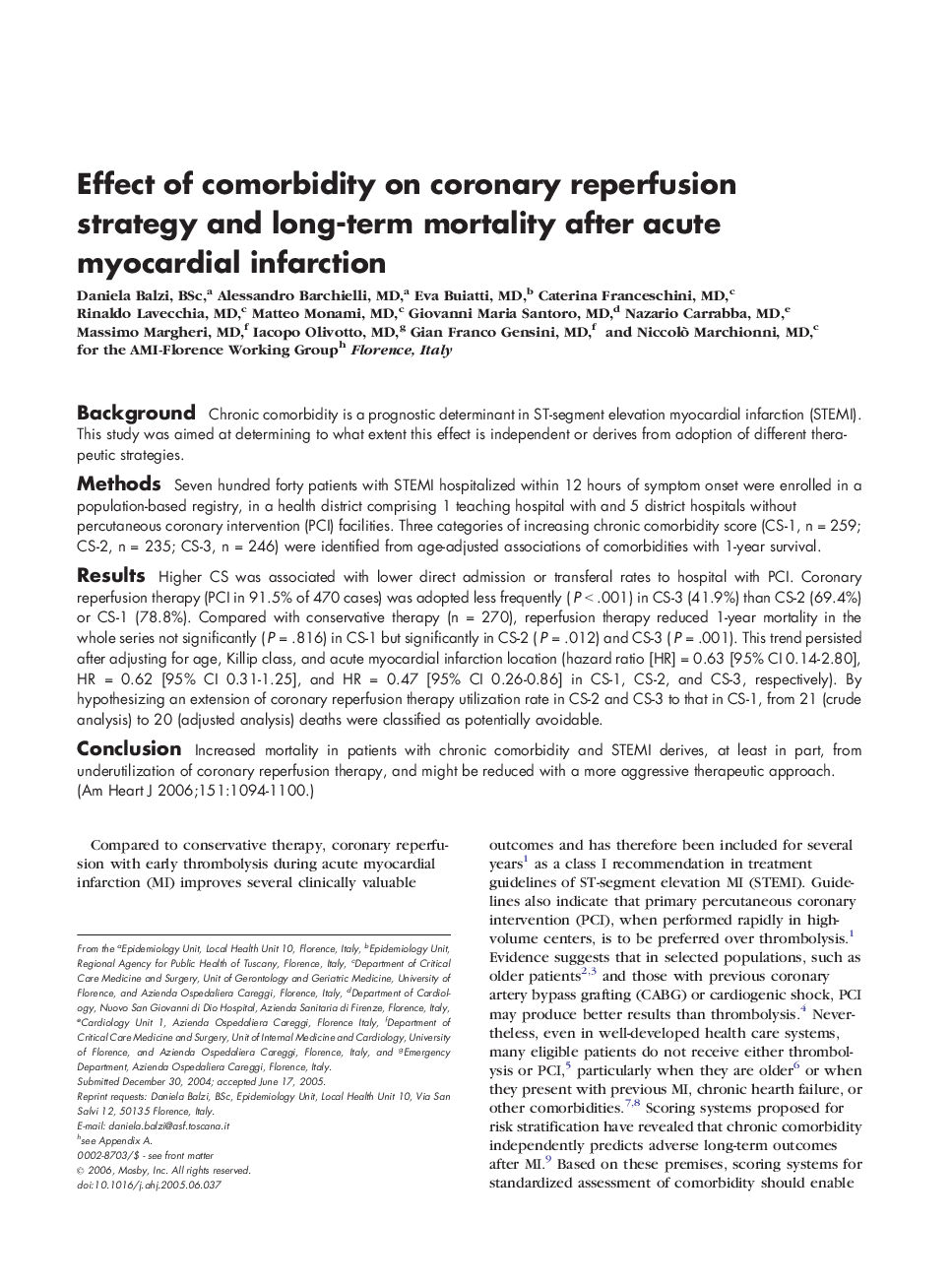| Article ID | Journal | Published Year | Pages | File Type |
|---|---|---|---|---|
| 2851196 | American Heart Journal | 2006 | 7 Pages |
BackgroundChronic comorbidity is a prognostic determinant in ST-segment elevation myocardial infarction (STEMI). This study was aimed at determining to what extent this effect is independent or derives from adoption of different therapeutic strategies.MethodsSeven hundred forty patients with STEMI hospitalized within 12 hours of symptom onset were enrolled in a population-based registry, in a health district comprising 1 teaching hospital with and 5 district hospitals without percutaneous coronary intervention (PCI) facilities. Three categories of increasing chronic comorbidity score (CS-1, n = 259; CS-2, n = 235; CS-3, n = 246) were identified from age-adjusted associations of comorbidities with 1-year survival.ResultsHigher CS was associated with lower direct admission or transferal rates to hospital with PCI. Coronary reperfusion therapy (PCI in 91.5% of 470 cases) was adopted less frequently (P < .001) in CS-3 (41.9%) than CS-2 (69.4%) or CS-1 (78.8%). Compared with conservative therapy (n = 270), reperfusion therapy reduced 1-year mortality in the whole series not significantly (P = .816) in CS-1 but significantly in CS-2 (P = .012) and CS-3 (P = .001). This trend persisted after adjusting for age, Killip class, and acute myocardial infarction location (hazard ratio [HR] = 0.63 [95% CI 0.14-2.80], HR = 0.62 [95% CI 0.31-1.25], and HR = 0.47 [95% CI 0.26-0.86] in CS-1, CS-2, and CS-3, respectively). By hypothesizing an extension of coronary reperfusion therapy utilization rate in CS-2 and CS-3 to that in CS-1, from 21 (crude analysis) to 20 (adjusted analysis) deaths were classified as potentially avoidable.ConclusionIncreased mortality in patients with chronic comorbidity and STEMI derives, at least in part, from underutilization of coronary reperfusion therapy, and might be reduced with a more aggressive therapeutic approach.
